As chief executive officer at Carma HoldCo Inc., Adam Wilks has a seriously enviable job to do each Sunday: sesh out with former World Heavyweight Champion Mike Tyson and collect the boxer’s thoughts about which flower contenders should enter the ring next.
Fit, energetic, and creatively intense, Wilks oversees a portfolio of celebrity brands including Tyson 2.0, Ric Flair Drip, and EVOL by Future. The brands are sold in nineteen countries. He’s eternally on the hunt for the next cultural icon to bring into the fold.
If the man seems driven, that’s because he is. Success is his drug of choice, thanks in part to lessons he learned as a teenager in the Toronto neighborhood where he grew up.
“One of my first jobs was with a gentleman named Phil Heyman, who owned a wheel-and-tire company in Toronto,” Wilks said. “He had me working six days a week from seven in the morning to seven at night. I attribute a lot of my drive to him just pushing me harder than I ever would have thought I could work at that age. He actually put me through night-school college because, he said, ‘If you’re going to take over the business, you’re going to get a business degree.’ I actually ended up opening my own wheel-and-tire shop and sold that off before moving to California in about 2010.”
Over the next dozen years, Wilks pursued a successful career in the quick-service restaurant industry, most notably overseeing brands like Yogen Früz, Pinkberry, and Cold Stone Creamery. After segueing into cannabis, he served as chief operating officer at One Plant, a multistate retail chain, and in the same capacity at SOL Global, an international investment group focused on the cannabis, hemp, and CBD markets. He also served as CEO of Captor Retail Group, where he oversaw the Canadian investment firm’s chain of dispensaries and real estate portfolio in California and Florida. In 2021, he co-founded Carma HoldCo, a holding and licensing company built around celebrity brands.
And it all started with Tyson.
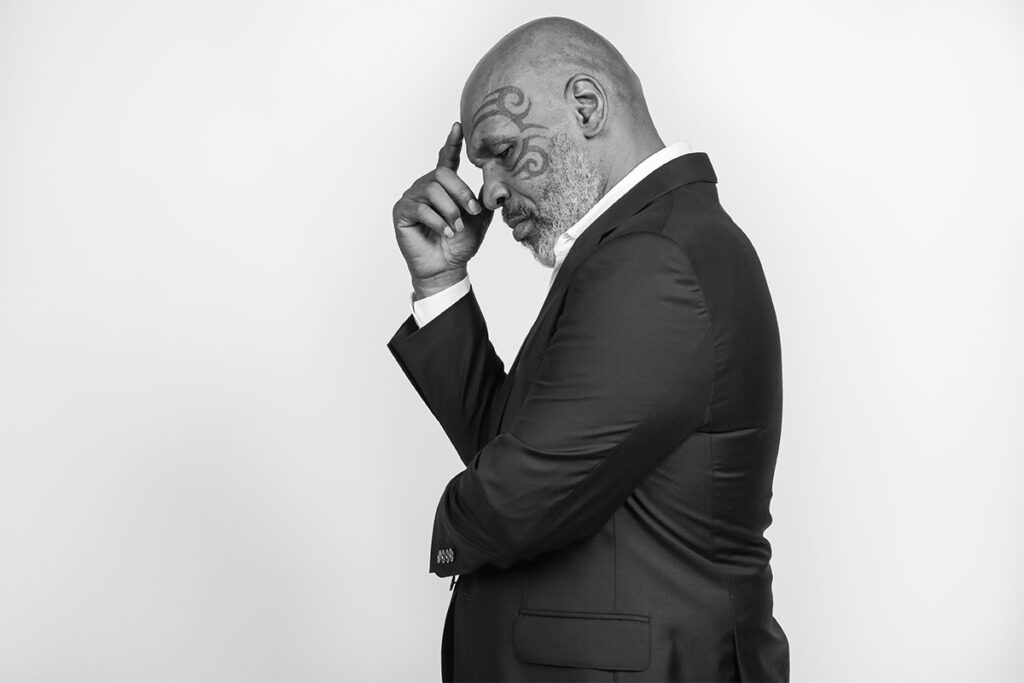
When the boxer and the businessman met, the heavyweight champ was no stranger to cannabis—the plant or the industry. Despite his reputation as a connoisseur of good bud, Tyson’s original brand, Tyson Ranch, grew too quickly and collapsed under its own weight. Wilks reorganized and rebranded the company from the ground up, and within a year Tyson 2.0 had sold more than 4,000 pounds of flower across twenty U.S. states and Canada. Today, products belonging to Carma HoldCo brands are sold by 1,100 retailers across North America. The company plans to enter an additional eight markets in the United States and abroad by the third quarter of 2024.
Wilks’s experience in retail promotions and marketing has been an invaluable asset to the brands with which he works, although sometimes the boldest ideas come directly from the celebrities. Case in point: Mike Bites. Not long after Tyson 2.0 launched, Tyson approached Wilks with the idea of making an edible gummy in the shape of an ear with a piece bitten off. The product is a sly reference to the infamous “bite fight” late in the boxer’s career (1997), when he bit off a piece of Evander Holyfield’s ear during a match’s third round and promptly was disqualified. Tyson lost his boxing license (though it was later reinstated) and became the butt of innumerable jokes. Despite his record of forty-four knockouts in fifty fights easily placing him among the greatest boxers of all time, Tyson always will be remembered for the ear incident.
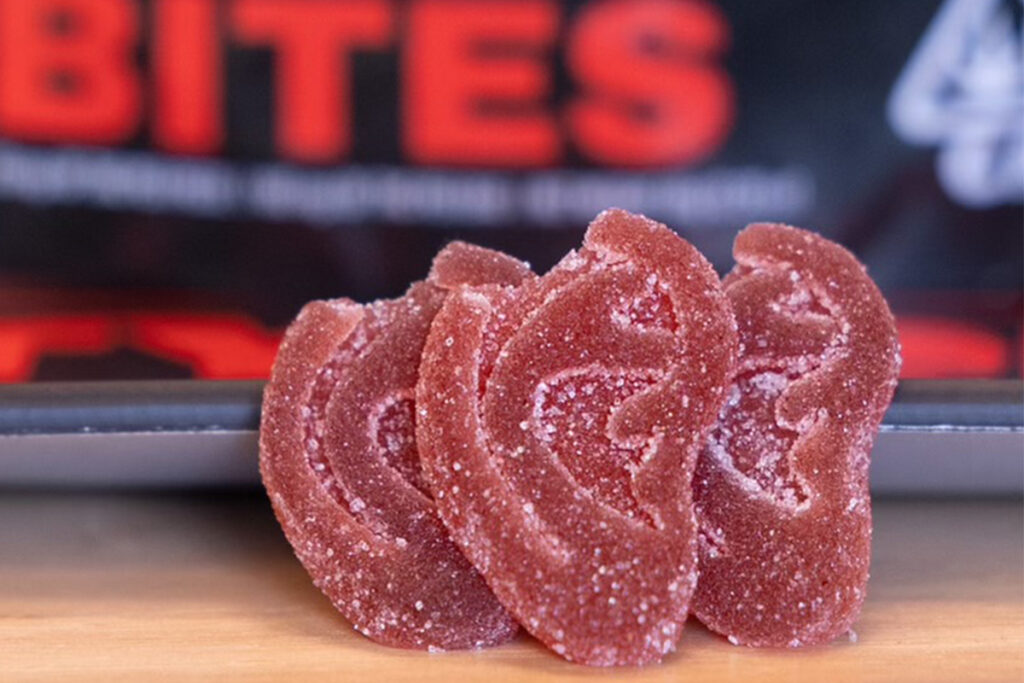
And that worked to the product’s advantage. The humorous self-own made Mike Bites a smash hit out of the gate. The product continues to be one of the brand’s best sellers.
If Wilks can turn a mangled-ear gummy into gold, is there anything he can’t do?
How did the Tyson and Flair deals come about?
In early 2021, I was approached by our now chairman of the board, Kirk Tovey. We had lunch in Newport Beach [California] and talked about taking over the Tyson brand. We all know the backstory on Tyson Ranch; it obviously was under bad mismanagement. [Tovey] said, “We love what you’ve done in the licensing world. You licensed some huge fast-food brands and then dozens of cannabis brands now successfully, and you’ve taken them out of state legally in licensing deals.” So he set up a dinner with Tyson in the summer of 2021 at Catch in [Los Angeles]. I remember going to the rooftop with Mike [Tyson], and he had David Blaine come up and do some magic tricks for us. We’re standing there, all smoking a joint together, and Mike looked at me and said “I want you to be the CEO of this company.” We shook hands, and Tyson 2.0 was born.
From that moment on, we quickly scaled by signing a deal with a large [multistate operator] to take the brand across eleven-plus states. Today we’re active in nineteen countries and twenty-plus states.
Over the process, we acquired the Ric Flair Drip brand. So we have Ric Flair and his [intellectual property] and hundreds of categories. Not only do we have his cannabis products, but we also have the energy drinks side, and we are the exclusive energy drink for the Cleveland Cavaliers, Columbus Blue Jackets, Ohio State University, [All Elite Wrestling], and so on. We have some merch[andise] deals with some large retail box chains. We have supplement products. I mean, it’s really just endless.
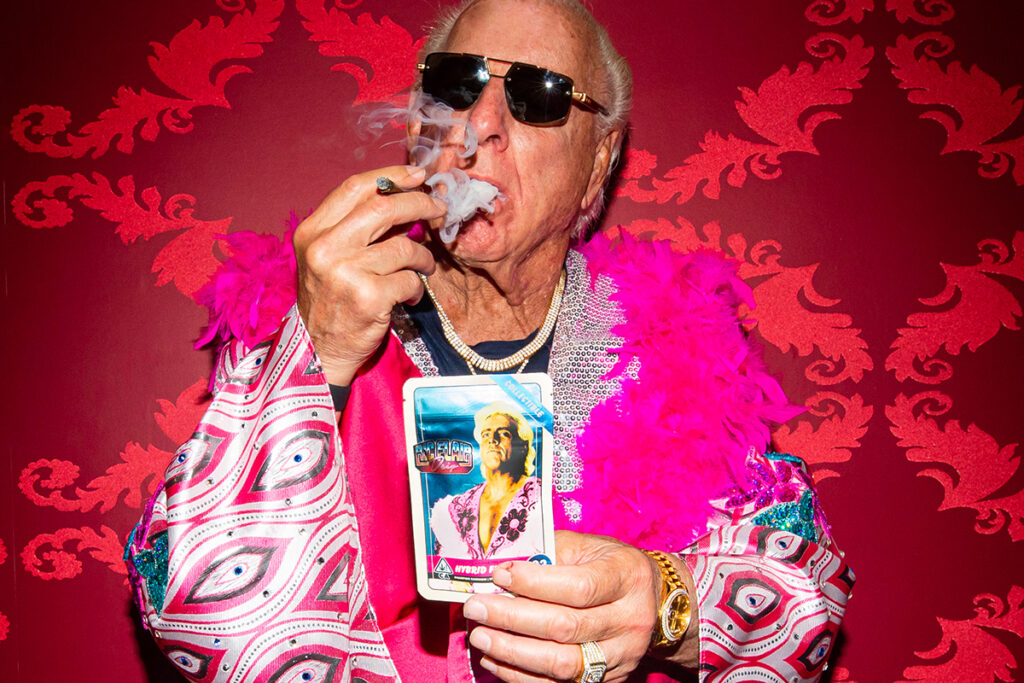
What were some of the main concepts you talked about early on for the Tyson and Flair brands, and how did you pivot along the way?
The initial launch and concept were about “what is Mike smoking?” and “let’s make the brand as authentic as possible.” We started with flower and pre-rolls, and we kept the authenticity by having Mike and Rick involved on a regular basis. For example, we did a cookie line for Mike, and I remember sitting in his kitchen, going through a couple dozen flavors of cookies to find the right one that he wanted to launch. From that, we created My Favorite Cookie. Rick wanted lemonade for his Figure Four edibles. Lemonade may not be the most popular flavor, but it is what Rick enjoyed at the moment. We are ensuring consumers can connect to the talent in the most authentic way possible.
Mike Bites was a bold marketing idea, and it turned out to be a big hit. Who came up with the concept, and how did you execute the marketing campaign?
Mike and his wife presented Mike Bites as an idea they’ve had for a long time. The second I heard it, I said, “Give me a few weeks, and we’ll have something creative.” So, within six weeks, I had the product live and posted the first photo on my counter in my kitchen. I think we got six billion impressions in seventy-two hours. We had Jimmy Kimmel, Jimmy Fallon, CNN, Fox News and more than 600 media outlets that picked it up. It was wild; absolutely insane. I leaked it on my kitchen counter, and it’s been incredible for us.
We continue to innovate and ideate on that specific SKU. We just launched Night Bites, which is a CBN-focused edible for sleep. We had some fun content shot with Mike on that one, including a commercial. We did a spot with [former heavyweight champion and Tyson rival Evander] Holyfield last Christmas, to involve Mike and Holyfield on the twenty-fifth anniversary of the “bite fight.” We got them both around the Christmas tree and Holyfield gifted Mike an iron, saying “Glad we can iron things out.” And Mike gifted Holyfield his ear back [in the form of a Mike Bites gummy]. That was a fun one. We are really pumped on Mike Bites, and it continues to be a viral moment and an extremely successful SKU for us.
How have you succeeded where so many other celebrity brands have failed?
We’ve all seen celebrity brands struggle to find their footing, whether it’s hip-hop artists or athletes or some of the biggest names on the planet. Jay Z launched in California and never made it out of the state. Lil Wayne is in a couple of states, Seth Rogen’s brand is not on the shelves, and Leafs by Snoop doesn’t exist anymore. And these are massive, massive names.
Authenticity is a huge part of why our brands succeed, but the team behind them also plays a massive role and so does the involvement of the talent. We all see Mike and Ric out there, showing up when and where they need to and connecting with consumers. That gives consumers the feeling it’s all real. We also have guys like me, with more than a decade of licensing experience, working behind the scenes, and our marketing team is extremely talented. Their dedication, the authenticity of the brands, and the quality of products is a huge part of [making our brands popular]. Just slapping your name on something doesn’t work anymore.
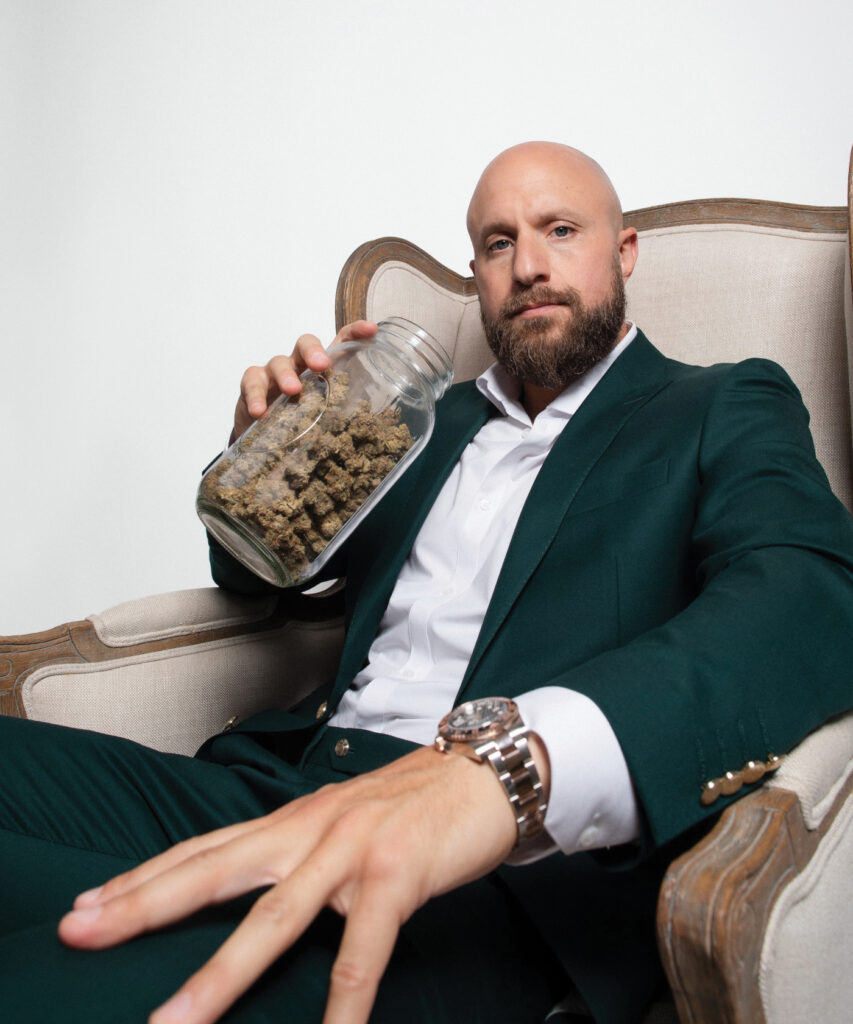
What was your first experience with cannabis?
In my high school days, I was the plug for cannabis. I started using cannabis at fifteen years old; at seventeen, I saw cannabis use as a medicine when my grandmother had a brain tumor. I remember going down to my grandma’s house in downtown Toronto, and we sat inside her family room on her carpet and smoked a joint together. The second she started smoking, I remember looking in her eyes and it was like this calm peace took over and she just changed. I’ll never forget that moment, because that’s when I realized it’s a miracle medicine. It blew my mind.
When you look at the total revenue pie, how big a piece is non-cannabis merchandise?
Last year, I think about 30 percent of our sales were cannabis. The rest came from accessories, CBD, nicotine and tobacco merchandise, and all other non-cannabis avenues. We just opened our second merchandise-only retail outlet in Amsterdam. We do have our Amsterdam coffee shop, which for me hit home because I’ve been opening retail franchises worldwide [for a long time]. The Tyson 2.0 coffee shop in Amsterdam quickly became one of the hottest spots in the city, so we then started building out our merchandise store, which is non-consumption. It’s exciting to have Tyson 2.0 in the retail world.
In total, we did over nine figures in revenue last year, not including cannabis sales, so [merch] plays a huge part in our story and our revenue and our financials. The non-cannabis side is extremely lucrative, and it gives us a way to reach a lot of consumers who may not use cannabis. I think it creates a very cool, exciting hype around the brand. A lot of people may just want to buy the merchandise or may not want to go smoke a joint but will still use a CBD product. So yes, we sell a very large amount of non-cannabis products.
You work with some of the most iconic fighters of all time. What’s your sports background?
I’ve always been into fitness. In my early teen years, I started working out in my basement with friends, which led to getting a gym membership. Now it’s been well over twenty years that I have just consistently been working out and the last handful of years of boxing. I’ve been training with Todd Medina, a world champion and the first American Mexican [Ultimate Fighting Championship] fighter. He has been my trainer for many years now.
For me, it’s more about fitness. I have the whole Tyson team training, and a lot of mornings I get them over to the gym. I think if you’re physically healthy and mentally healthy, you’re able to perform at your maximum. So I try to keep the team motivated; I try to keep them in shape. I feel it really shows in everybody’s overall effort at work and performance.
What qualities do you look for in business partnerships? What qualities do you look for in team members?
With new partners, we have a due-diligence process—the financial, the quality control, the distribution opportunities, and obviously the rules and regulations in a specific territory. We have an incredible business-development team that addresses these, and we have a very substantial network in this industry as we choose new partners and new licensees across the globe.
As far as team-building goes, we are always looking for people with real experience who have an understanding of the industry, which is not an easy space to navigate or operate in. We’ve gone through a handful of individuals from corporate America that just didn’t fit the part. We’re fortunate that we’re not actually touching the plants, as we license the brands to cultivators, manufacturers, and distributors. We sell them packaging, as opposed to cultivating and touching the plant in any way ourselves. So we have a good mix of people from mainstream commercial industries and others with extensive cannabis experience.
If cannabis is rescheduled, companies may be able to market their products and brands more easily in traditional channels. How important do you think that’s going to be going forward?
Rescheduling would open up a huge opportunity once we’re able to market in mainstream channels. There is a lot of capital in this industry that just hasn’t been used yet. You see these pharmaceutical commercials all the time, right? Whether it’s during a Super Bowl or whatever it might be, cannabis brands should be able to do the same thing. We’re very restricted on social media, a platform where there are billions of daily users. So I’m excited about it, and my marketing team is even more excited about it.
Just to be free to market something like we can with Ric Flair’s [non-infused] Woooo Energy beverage would be a game-changer. We can sponsor sports teams with that brand, but we can’t do that with any of the cannabis stuff. We’re very restricted. Mike Tyson’s fight coming up with Jake Paul—I cannot advertise Tyson 2.0 due to the Netflix restrictions around the fight.
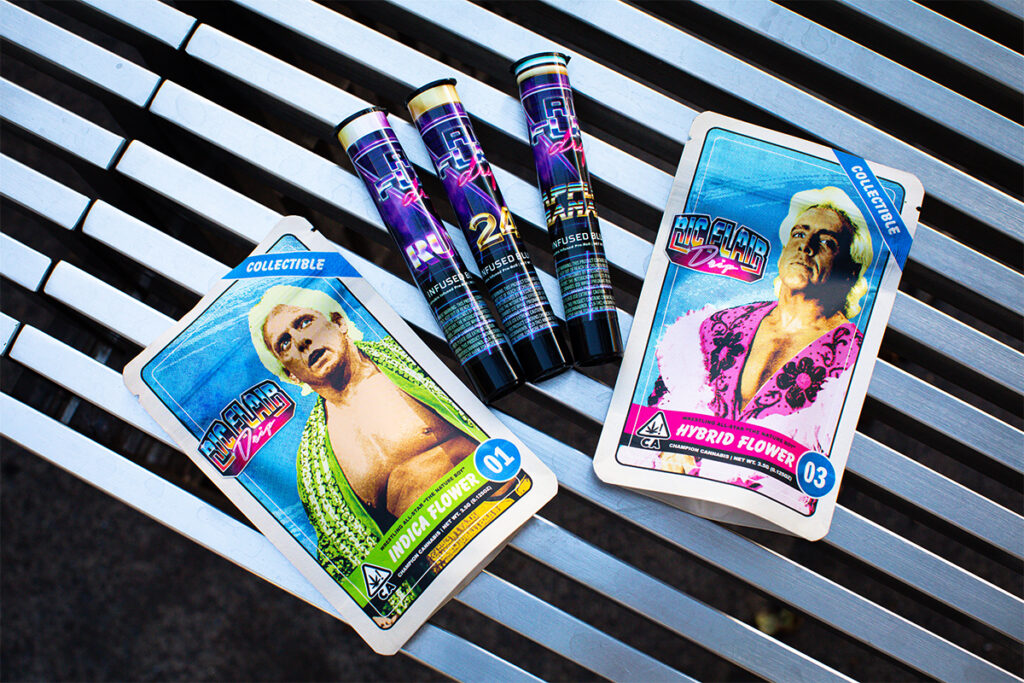
There’s certain things you can and can’t do [with a Schedule I product]. And that’s just the marketing side, not to mention the financial side of things. The SAFER Banking Act side. A lot of capital will come into this industry from individuals and funds globally that have been tiptoeing around the industry because of different restrictions in the financial sector.
Where, both in the U.S. and internationally, are you trying to expand your brands?
We’re in the middle of some supplements negotiations, and large-scale merchandise and accessory deals are in the mix right now. We’re also really focusing on the retail side. I have a decade of retail experience I’d like to tap into, using what we did in Amsterdam to continue to build on the retail end. Tyson 2.0 coffee shops and cafes: Why shouldn’t we have them in every country around the world? My thought process is, you have a McDonald’s or whatever, and I have a Tyson coffee shop. Cannabis is not legal yet in some countries where we’ve been negotiating, so we’ll just do a hookah lounge or whatever. Then, when they’re ready for cannabis, we will be ready for them.
I think the retail play is huge. I think, you know, Tyson is even larger globally than he is in the U.S. People love him in the international world.
We’ll continue to focus on global expansion, country by country. We have so much on our plate right now that I’m excited to execute on. Dozens of deals that have been signed are all going through the process. I’m just excited to keep focusing and keep building on what we have here. We do have a few new talents under [letter of intent], and I’m excited to bring those into the market as we build on what Carma already has. We have this massive distribution channel, and we feel we can continue to bring authentic celebrity brands into the industry and beyond. I mean, not just cannabis, but everything. We’re talking nicotine, tobacco, hemp, CBD, THC, et cetera.







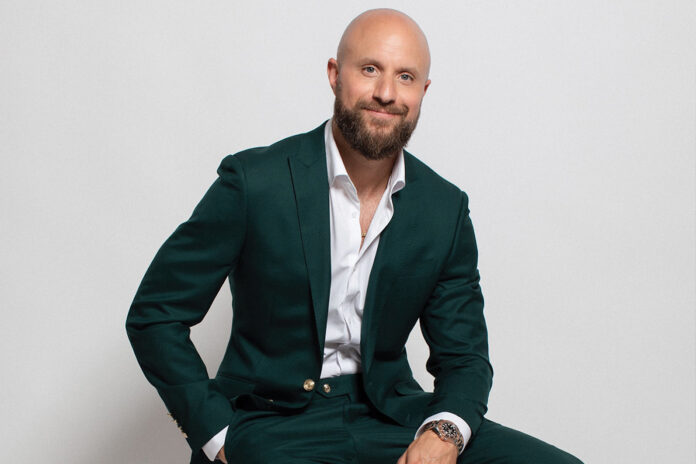




[…] Adam Wilks: Brand Champion […]